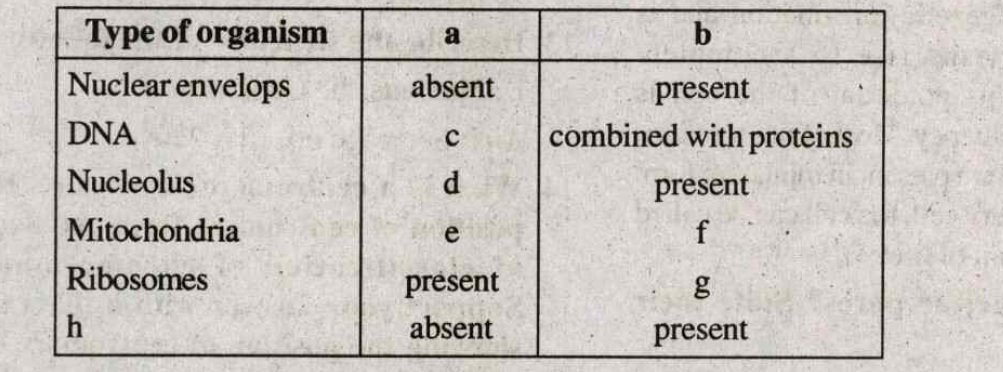[A] : Prokaryotic cell shows no cyclosis.
[R] : Eukaryotic cell shows the absence of cytoplasmic streaming . Solution in Kannada
If both A and R are true and R is the correct explanation of A
If both A and R are true but R is not the correct explanation of A
If A is true and R is false
If both A and R are false
Step by step video & image solution for [A] : Prokaryotic cell shows no cyclosis. [R] : Eukaryotic cell shows the absence of cytoplasmic streaming . by Biology experts to help you in doubts & scoring excellent marks in Class 12 exams.
Updated on:21/07/2023Topper's Solved these Questions
Similar Questions
The term 'Protista' was introduced by a German Biologist and Philosopher
View SolutionThe aquatic fern which is an excellent biofertilizer is
View SolutionWhich part of protoplast shows streaming or cyclosis
View SolutionAssertion. Prokaryotic cells lack cyclosis in their cytoplasm.
Reason. Eukaryotic cells lack respiratory enzymes in the plasmalemma.
View SolutionAssertion. Cyclosis occurs in the eukaryotic cells.
Reason. Cyclosis is lacking in plant cells.
View Solution[A] : Prokaryotic cell shows no cyclosis. [R] : Eukaryotic cell shows the absence of cytoplasmic streaming .
View SolutionMention the two types of organisms containing prokaryotic cell. What are the cytoplasmic organelles of eukaryotic cell?
View SolutionWhich structures help in cyclosis of cytoplasm and cleavage of cell?
View SolutionGlycolysis occurs in mitochondria and cytoplasm in case of eukaryotic cell and prokaryotic cell respectively.
View SolutionProkaryotic cell and Eukaryotic cell
View SolutionProkaryotic cells and Eukaryotic cells
View Solution[A] : Prokaryotic cell shows no cyclosis. [R] : Eukaryotic cell shows the absence of cytoplasmic streaming .
View SolutionUnlike eukaryotic cells, prokaryotic cells :
View SolutionIn a eukaryotic cell glycolysis takes place within the mitochondria, whereas in a prokaryotic cell in the cytoplasm
View SolutionTable which shows a comparison of cell organization in prokaryotes and eukaryotes. Complete the table.

View Solution
